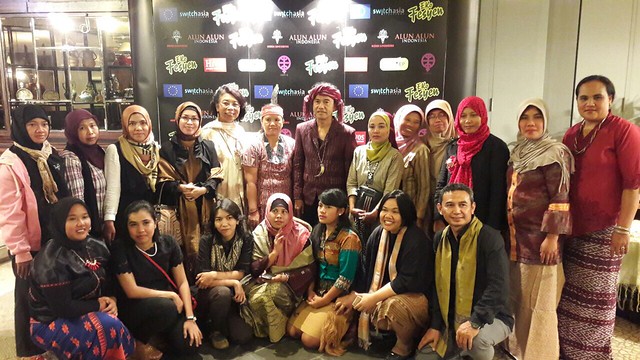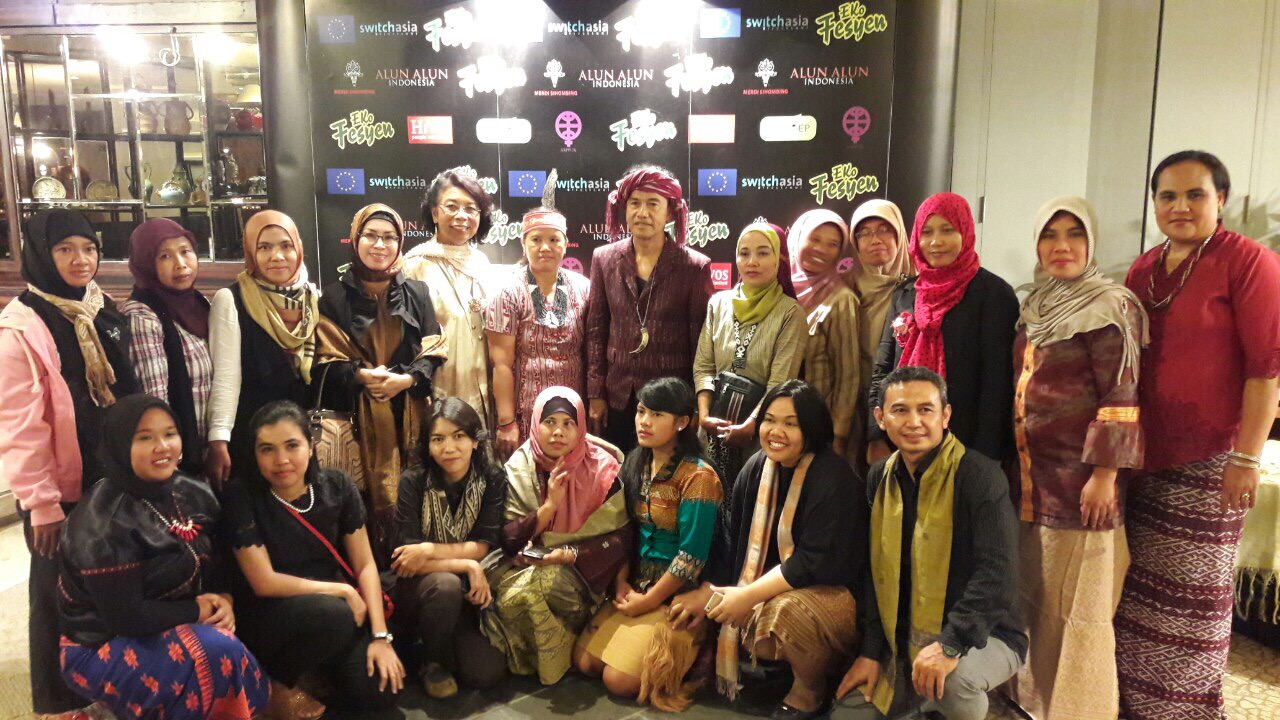JAKARTA, Indonesia – The Indonesian fashion industry is becoming increasingly involved in supporting the development of environmentally friendly products. As a firm believer of the same advocacy, famous fashin designer Merdi Sihombing launched a new collection made from sustainable materials. Meanwhile, Director of Non Timber Forest Products Exchange Programme, Jusupta Tarigan, noted that there is a huge potential in Jakarta and other major cities in Indonesia to market environmentally friendly products, especially among the urban consumers.
 The artisans during the collection launch last 26 August at Grand Indonesia, Jakarta
The artisans during the collection launch last 26 August at Grand Indonesia, Jakarta
Working together with HIVOS, the Association of Women’s Small Business Companion (ASPPUK), Non Timber Forest Products Exchange Programme (NTFP EP) Indonesia, through the support of the European Union, Merdi Sihombing reinforced his commitment to sustainable fashion by working with the women weavers from nine provinces in Indonesia.
This movement is a fashion milestone for the Indonesian fashion industry as this is the first time a fashion designer from Indonesia create an environmentally friendly fashion collection that adheres to the standards of the international textile use. Merdi’s latest collection is processed using sustainable processing methods and the use of environmentally friendly natural dyes, fluid extracts, and organic fibers. “Hand-woven textiles are usually produced on various islands of Indonesia, and is commonly used as decorative accents to home appliances, fashion accessories, and garments. These textiles have high cultural value,”said Merdi Sihombing.
Merdi added that “This environmentally friendly collection is a big step towards what I always wanted to achieve together with the weavers; traditional handwoven eco-textiles do not deal any harm to the environment, thus making it worthy to be promoted as a fashion product that is of excellent quality and highly competitive,” said Merdi. The Executive Secretary of the National Association of Facilitators Women Small Business, Mia Ariyana said that through this collaboration with the fashion industry it also helps the livelihoods of the weavers who are mostly marginalized women members of indigenous groups in the area. Aside from that, this also helps preserve traditional knowledge on sustainable production techniques.




